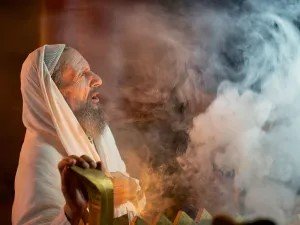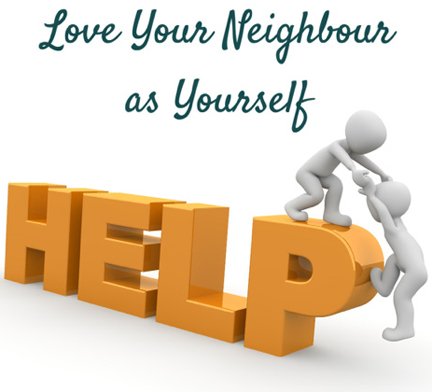Jeremiah 8:18 – 9:2c
Ever since September 11, I have been troubled by something. I have been upset by the fact that there is hardly any attention being paid to the fact that, as of Friday, some 747,970 Americans have died of COVID-19. I think that September 11 observances are very important and meaningful. But as I watched people gather in New York and listened as the names of the almost 3,000 people killed that day were read, I said to myself, an average of 1,174 people have died of COVID every day since February 6, 2020, when the first COVID patient succumbed to the virus. That means that it takes less than 3 days for us to have a 9/11 in COVID deaths. Why, then, is there so little mention of their names? Why is there no memorial or monument being designed to commemorate their passing? Why have we taken so little time to mourn so great a loss?
According to information I gathered from the website of the Department of Veterans Affairs, there have been a total of 658,105 American soldiers killed in battle from the American Revolution through the wars in Iraq and Afghanistan. It took more than 200 years for that number to accumulate. It has taken less than 2 years for these 747,970 Americans to die of COVID. And it seems to me that, for a myriad of reasons, their deaths have not been acknowledged or mourned sufficiently.
Drew Faust, President Emerita of Harvard University, wrote in September of 2020, “How does a society grapple with such loss? Two hundred thousand dead is not just an absence; it is a presence – the continuing reality of the hole, of the rent in the fabric of family and society, which these deaths leave behind. We struggle to find the meaning of such loss, and we seek a community of shared mourning, an acknowledgement that we are not alone in our grief … We lack both rituals and monuments to process our grief, and we improvise to name and honor those who have died. Mourning is a process that enables the bereaved to work through loss and adjust to their changed lives. In this pandemic, the mourning process has been arrested, inhibited, distorted in ways that leave us as individuals and as a nation with unresolved grief that will shape us for years to come.”
In a similar vein, Evelyn Hammonds, Chair of Harvard’s Department of the History of Science, wrote in the same journal, “As the U.S. approached 200,000 deaths from the pandemic of COVID-19 I kept asking, where are the memorials? Where can we gather to honor those who have died? Where can we talk about the ways these lost lives shaped ours? … I watch news shows that end with short vignettes of the lives of people who have died and what these individuals mean to their families and communities. But I have not experienced a sense of loss on a grand scale that the number 200,000 deaths marks. I have not seen daily scenes of funerals or other ceremonies marking these deaths. Yet the death count grows daily. And of course, what has been lost is not just these specific individual deaths; it is also the bonds between all those who were connected to those who have died – their families, friends, and communities, and those who nursed them, held their hands, delivered sad news to their families and those who have performed last rites. Our world has been irrevocably changed since January (2020), and we here in the U.S. have yet to find a way to make this change visible, to deal with the loss, to grieve and to mourn … We need new rituals and new forms of community, not on screens but in public spaces where we can stand together …”
As I wrestled and struggled with my own sense of mourning and grief, and with an awareness of the tremendous amount of grief being held in the hearts of people around me, I was drawn to the book of Jeremiah, to the words of “the weeping prophet.” Jeremiah lived in a time when the people were suffering and were about to suffer even more. They had brought their suffering on themselves by their sinfulness, but that did not make it any easier to bear. And it was painful for Jeremiah to have to tell the people he loved that they would suffer more in the future. It was hard for him to watch the suffering they were going through in the present. He wept and he mourned on their behalf. He said, “O my Comforter in sorrow, my heart is faint within me. Listen to the cry of my people from a land far away. “Is the Lord not in Zion? Is her King no longer there? … Since my people are crushed, I am crushed; I mourn, and horror grips me. Is there no balm in Gilead? Is there no physician there? Why then is there no healing for the wound of my people? Oh, that my head were a spring of water and my eyes a fountain of tears. I would weep day and night for the slain of my people.”
On a personal level, COVID has been responsible for the fact that people have been denied the very rituals of mourning that they need to comfort them, even if their loved one has died of something other than COVID. There could be no large gathering of family and friends at the funeral. Early in 2020, I conducted several graveside services where attendance was limited to 10 people who had to be socially distanced, even if they were members of the same family. There were no visits at the home from friends or family, no bringing of food from church members. Hundreds of thousands of people were denied proper funerals or memorial services, and their families were denied the company of their broader community.
Cassandra Rollins lost her 38-year-old daughter to COVID. After more than a year, her grief is still unrelenting. She is suffering from what is called “complicated grief,” or prolonged grief disorder. She has suffered depression and panic attacks and is fearful for the safety of her other daughters. She is afraid that someone else will die and says that everyone she knows has lost someone to COVID. She says, “The hardest part is that my kid died alone. If it weren’t for this COVID, I could have been right there with her in the ambulance and emergency room. I could have held her hand … People holler about not being able to have a birthday party. We couldn’t even have a funeral.”
At the point where we were at 500,000 deaths, researchers estimated that more than five million Americans were in mourning and more than 43,000 children had lost a parent to COVID. But those numbers may not be accurate. In a poll in March of this year, about 20% of Americans said that they had lost a relative or close friend to COVID; that would mean about 65 million people are in mourning. Holly Prigerson, co-director of the Cornell Center for Research on End-of-Life Care in New York, says that the scale and complexity of pandemic-related grief have created a public health burden that could deplete our physical and mental health for years. It could lead to more instances of depression, substance abuse, suicide, sleep disorders, heart disease, cancer, high blood pressure, and impaired immune function. She writes, “Unequivocally, grief is a public health issue … You could call it the grief pandemic.”
Vickie Mays, Professor of Health Policy and Management at UCLA, writes, “If we don’t find ways to bring attention to the emotional suffering that people are coping with right now, it will turn into more serious problems.” And I would agree with that assessment wholeheartedly. When people are not free to express their emotions, but hold them inside, they eat away at them and seem bigger than they really are. It’s impossible to work through the stages of grief if you are not finding healthy ways to express your grief. And when our culture seems to be in a state of denial over the number of COVID deaths, or at least seems to be ignoring them, it makes it hard for those who are grieving to feel that their loved ones are being shown respect. It’s as if everyone else is only thinking about life getting back to “normal,” when they know that their life will never be normal again.
When you add to all of this the political aspects of COVID, grieving the loss of someone who died from COVID becomes even more complicated. Kyle Dixon died at the age of 27 from COVID back in January of this year. He was a guard at a state prison in a conservative county in rural Pennsylvania. Kyle unfortunately had believed a lot of the misinformation that was out there: that masks don’t work; that COVID is a hoax; that only old people or people who are already sick get COVID. So he chose not to wear a mask most of the time or to practice social distancing.
Kyle’s sister, Stephanie, says that even when Kyle was in the hospital struggling to breathe, there were members of the family still repeating this kind of misinformation. And his sister, Jennifer, says that she wished that they had understood what he endured before he died. When he passed away, they made a point of putting in his obituary that he had died of COVID and that he “had so much more of life to live and COVID-19 stopped his bright future.”
In the midst of all of this mourning and grief, where do we find ways to express our grief in meaningful ways? Without a national memorial or monument, are there ways to remember our loved ones, to acknowledge their significance in our lives, to proclaim that they existed and their lives mattered?
Hilary Krieger found a way to do it after her father died from COVID last year. She said that when her father was in college, he had invented a word to describe when a citrus fruit accidentally squirts you in the eye: orbisculate. He kept using it, and so as she was growing up, Hilary assumed that it was a real word. Then one day while eating oranges, a friend of hers from college challenged her on it. They settled their argument with a $5 bet over whether the word was in the dictionary. Hilary was shocked to open up her trusty book and discover that she had lost the bet.
At the time, she was upset that her father had fooled her. But as she was telling people about her father’s death, she kept coming back to the story of his invented word. It seemed to capture his sense of humor and his quality of originality, things that she wanted to remember and communicate about him. So she and her brother decided that they were going to get this word into the dictionary. They launched what they called “Mission Orbisculate.” As part of their effort to spread the word, they decided to sell t-shirts to raise money for a charity. They are still working to get this word recognized.
Not everyone has the strength or creativity to pull themselves out of grief in this manner. And some people’s grief is much more complex – those who suffer from prolonged grief disorder – and they need counseling in order to cope with what they are experiencing. But through it all, and for each one of us, there is the power of God to draw on. There is a balm in Gilead; there is a physician there. He is our Comforter in sorrow, our hope in our time of grief. And he can heal the wound of his people.

























